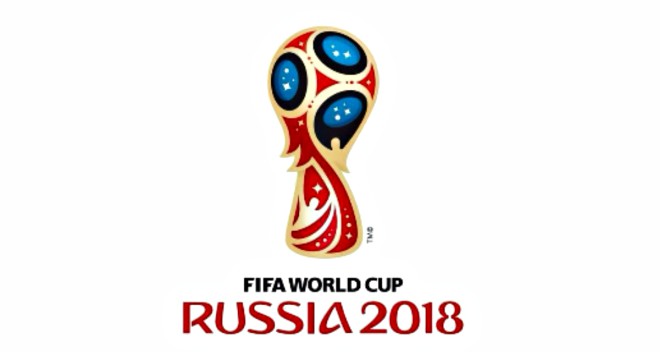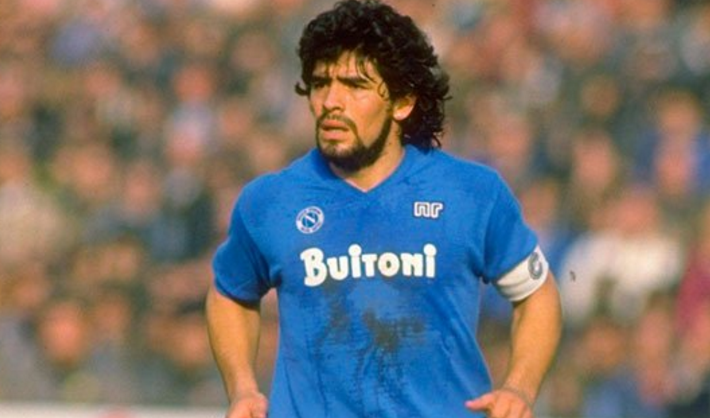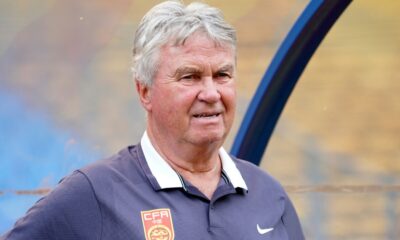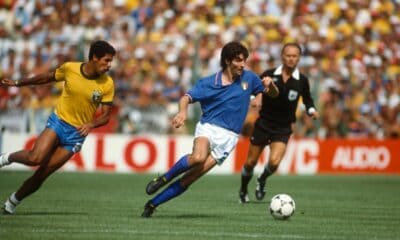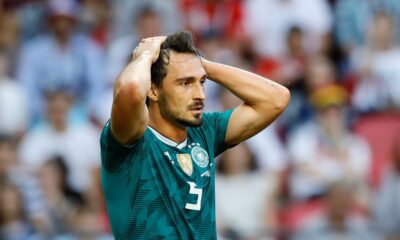There are few positions in sports as pressure-packed as that of World Cup manager. Here is a look at the 32 men privileged with that pressure heading into the start of the tournament in just three weeks time.
Group A
Stanislav Cherchesov, Russia
The man tasked with leading the home nation this summer? Not a foreign emissary like Guus Hiddink or Fabio Capello, not the popular former CSKA coach Leonoid Slutsky, but the comparatively underwhelming 54-year-old Stanislav Cherchesov.
Cherchesov, a former goalkeeper whose last job was in Polish football with Leiga Warsaw, is regarded coolly in Russia. He’s emphasized hard work and transition play, but friendly results have been terrible and the squad is bereft of talent.
Juan Antonio Pizzi, Saudi Arabia
With money no object, and patience in short supply, the Saudis have rifled through three managers in the last year. Former Netherlands coach Bert Van Marwijk qualified the team and then left after clashing with the FA, Edgardo Bauza had the job for two months, and then Pizzi – who failed to qualify Chile – was appointed.
The Argentina-born has a big job in front of him. He’s only been in charge for some six months, and the upheaval of the last year has taken its toll on the almost entirely domestically based team. Expectations are low.
Héctor Cúper, Egypt
The Argentinian Cúper took the Egypt job in 2015, and his timing couldn’t have been much better: two years later, thanks in very large part to Mohammad Salah, the Pharaohs qualified for the first World Cup in 28 years.
Cúper’s résumé includes stops at Valencia and Inter Milan, and he’s known as a fairly conservative coach. He and his team will go as far in this tournament as Salah can take them.
Óscar Tabárez, Uruguay
The oracle of modern Uruguayan football, Tabárez has been in charge of the national team for the last twelve years and is preparing to lead his country into the World Cup finals for the fourth time.
His hold over the program cannot be overstated. Of Uruguay’s ten most-capped players, all ten played for the man and eight for the majority of their national team careers. With a strong team and a weak group, expectations are high for Russia.
Group B
Fernando Santos, Portugal
His teams don’t play particularly enjoyable football, but Fernando Santos is a dead-eye tournament coach. He got Greece to within a penalty shootout of the quarterfinals at the 2014 World Cup, and then took an ordinary Portugal side all the way to glory in France at Euro 2016.
Santos’ teams are extremely hard to break down – Portugal didn’t conceded just one goal in four knockout games at the Euros – and completely bought in. They’re not going to blow teams away in Russia, but they’ll be an awfully tough out.
READ MORE:
• Cord cutter’s guide to World Cup 2018
• World Cup shirts for all 32 teams
• FAQ on World Cup TV coverage in USA
• Schedule of soccer friendlies in USA this summer
Julen Lopetegui, Spain
Lopetegui tasked himself with adding a pressing element to Spain’s measured, possession-based style after taking over from Vicente Del Bosque after Euro 2016, and the results in qualifying were excellent – a 3-0 dusting of Italy at the Santiago Bernabeau serving as a pièce de résistance.
Lopetegui cut his teeth coaching youth football, both with Real Madrid’s B team and the Spanish U19s, 20s, and 21s, and he’s also made a point of injecting youth into the team while maintaining its experience core.
It’s been a balancing act, but Spain appears poised to contend in a way they weren’t at the last two major tournaments.
Hervé Renard, Morocco
There are few more successful coaches in the history of African football than Renard, who is the only coach to win the African Cup of Nations with two different countries – Zambia in 2012, and the Ivory Coast in 2015.
Now, Renard is taking Morocco to the World Cup for the first time since 1998. His team was airtight defensively in qualifying, and they work extremely hard for one another. That, along with Renard’s track record in knockout competition, should have Spain and Portugal ever so slightly worried.
Carlos Queiroz, Iran
A failure with Real Madrid and Portugal, Queiroz has found new life as manager of Iran. He’s been in charge of Team Melli since 2011, and has gained considerable acclaim for qualifying them for consecutive World Cups.
Queiroz is colorful – he dared the Iranian FA to fire him in December, has clashed with opposing coaches, and criticized Iran’s preparation – but his team, while short on talent, is well organized and confident. He’ll have them up for the Portugal game in particular.
Group C
Didier Deschamps, France
Deschamps survived his team’s upset loss in the final of Euro 2016, and his reward has been the opportunity to continue his work with France’s most talented generation since the one he captained to the World Cup title on home soil in 1998.
In an illustration of their depth, just nine of the squad from two summers ago have made the team for Russia. But though Deschamps had his contract renewed for four more years, he’s been criticized for not getting more, more consistently, from his exceptionally capable team. The pressure is on.
Bert van Marwijk, Australia
Australia had a tumultuous road to Russia – going through two playoffs and traveling more miles than any other team in the world – and, though it ended happily, manager Ange Postecoglou decided he’d had enough: he resigned after the final qualifier, and is now coaching in Japan.
Postecoglou was hugely influential, playing an extremely attacking brand of football, and van Marwijk has big shoes to fill. He’s a pragmatic coach (as the 2010 final attests) but he’ll do well not to tinker too much with Postecoglou’s formula.
Ricardo Gareca, Peru
Soccer-crazed Peru’s qualification for its first World Cup since 1982 was one of the best stories of qualifying.
Their buildup to the tournament, though, has been dominated by star striker Paulo Guerrero’s drug ban. He’s now set to miss the tournament, though the country’s president has called on its law enforcement apparatus to intervene on his behalf.
Whatever happens, the well-traveled Ricardo Gareca, tasting the tournament for the first time after being left out of the Argentina team that won it all in 1986, has molded a well-balanced, aggressive team. A win or two, and he’s a national hero.
Åge Hareide, Denmark
Morton Olsen’s resignation after he failed to qualify Denmark for Euro 2016 marked the end of an era. Olsen had been the longest-tenured manager in international football, in charge of the Danes since 2000.
In his place, Denmark opted for more experience. The former Norway coach Hareide has won titles at the club level in Norway, Sweden, and Denmark, and he’s a fairly commanding presence.
Group D
Jorge Sampaoli, Argentina
Sampaoli made Chile one of the world’s most fearsome teams earlier in the decade, and, having guided Sevilla into the Champions League, was the obvious choice to take over from Bauza with his native country struggling in qualifying last year.
The hope was that Sampaoli’s Marcelo Bielsa-inspired frenetic, high pressing system would give Argentina an identity outside of Lionel Messi, but that has yet to happen. It took a Messi hat trick to secure qualification, and the team is still lost without him.
Sampaoli is a hugely capable coach, but he has big job in front of him to get Argentina in shape mentally and tactically before the tournament starts.
Heimir Hallgrímsson, Iceland
Co-manager with Lars Lagerback at Euro 2016, the native Icelander Hallgrímsson, a trained dentist who has also coached professional women’s football is now alone in charge and preparing to lead his side into their first ever World Cup.
Hallgrímsson has kept the team from the Euros almost completely intact, and because of how long they’ve played together, Iceland functions more like a club team than a national team. It’s an extremely tight-knit group, and the coach is an integral part of it.
Zlatko Dalic, Croatia
As is typical, there was drama abound in qualifying for Croatia. No one was particularly sad to see Ante Cacic go when he was fired just days before the final qualifier against Ukraine, but neither was anyone particularly heartened when they learned the identity of his successor.
Dalic’s appointment came out of left field. The 51-year-old was known to his bosses from his stint coaching the country’s U21s, but he had been coaching in the Middle East since 2010 and was only a middling player.
He’s appointed a famous assistant coach in Ivica Olic, but he’s fighting an uphill battle for respect ahead of the tournament.
Gernot Rohr, Nigeria
A stalwart defender for Bordeaux in the 80s, Rohr moved from France to Africa in 2010 and took the Nigeria job in 2016 after spells in charge of Gabon, Niger, and Burkina Faso, and worked wonders almost immediately.
200+ Channels With Sports & News
- Starting price: $33/mo. for fubo Latino Package
- Watch Premier League, World Cup, Euro 2024 & more
Live & On Demand TV Streaming
- Price: $35/mo. for Sling Blue
- Watch Premier League, World Cup & MLS
Many Sports & ESPN Originals
- Price: $9.99/mo. (or get ESPN+, Hulu & Disney+ for $13.99/mo.)
- Features Bundesliga, LaLiga, Championship, & more
2,000+ soccer games per year
- Price: $4.99/mo
- Features Champions League, Serie A, Europa League & NWSL
175 Premier League Games & PL TV
- Starting price: $4.99/mo. for Peacock Premium
- Watch 175 exclusive EPL games per season
110+ channels, live & on-demand
- Price: $59.95/mo. for Plus Package
- Includes FOX, FS1, ESPN, TUDN & more

